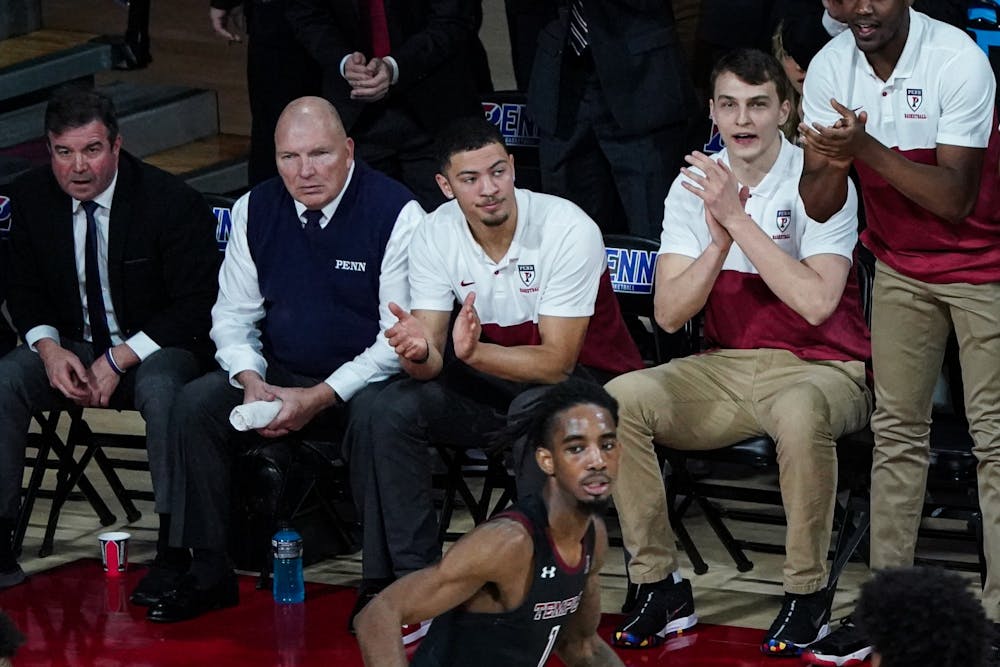Penn men’s basketball senior Jelani Williams was part of a group of approximately 30 Black Penn athletes who met and worked with Athletics Director M. Grace Calhoun to craft a Plan of Action to combat racism in the wake of George Floyd’s murder and ensuing worldwide protests.
With Penn volleyball senior Raven Sulaimon and track and field seniors Marvin Morgan and Demetri Whitsett, Williams outlined a number of concrete actions for Penn Athletics to undertake in an effort become an “anti-racist organization,” as Calhoun described in the statement released in June.
Despite the commitment to progress, Williams knows that now is not the time to stop pushing.
“I would like for Penn to set a standard and take the lead on this issue,” Williams said. “They’ve done some things in conjunction with the rest of the Ivy League, especially with the Athletics Department … but I think that Penn as an institution has to do more for West Philly. The fact that [Penn] doesn’t pay PILOTs [Payments in Lieu of Taxes] is insane to me. It doesn’t make any sense.”
Williams is referring to the financial contributions many organizations exempt from paying property taxes — like Penn — make to their local governments. Penn has previously defended its decision not to pay PILOTs because it contributes to the city in other ways that it views as being more significant.
That said, Williams can think of plenty of ways in which he would like to see both the university and the Athletics Department contribute to the communities that surround it.
"There’s a lot that Penn can do outside of just trying to appear that they’re on the right side of this issue, because at the end of the day, as a school with a multi-billion dollar endowment with very powerful alums, very powerful students, and very powerful people, there is a responsibility there for them to affect change in the education sphere,” he said. “Whether that be helping not only to fund Philly public schools, but also to help support them in terms of a curriculum, programming, or things like that, I just think that there needs to be way more investment from Penn into the surrounding community.”

Williams’ call to action stems from feeling like he very much lives in a bubble at Penn. He resents the idea that members of the University City and West Philadelphia communities, which are home to many of Philadelphia’s BIPOC residents, do not see Penn as an available resource.
Not only does Williams cite a lack of inclusion of those communities on Penn campus, but he also notes that in his personal interactions with Philadelphians outside of University City, more people tend to harbor negative feelings toward Penn than don’t.
Although he sees massive room for improvement when it comes to Penn’s engagement with its surrounding communities, Williams says that progress is underway — he just wants to see it on a greater scale.
“I just think that there needs to be major action, and I would like for Penn to take the lead, because there are so many resources, and there is so much that we could do,” he said. “All the statements, all the Young Quakers programming, and all the little things that they’re trying to do — and they’re doing the right thing — I just want to see them maximize their impact.”









